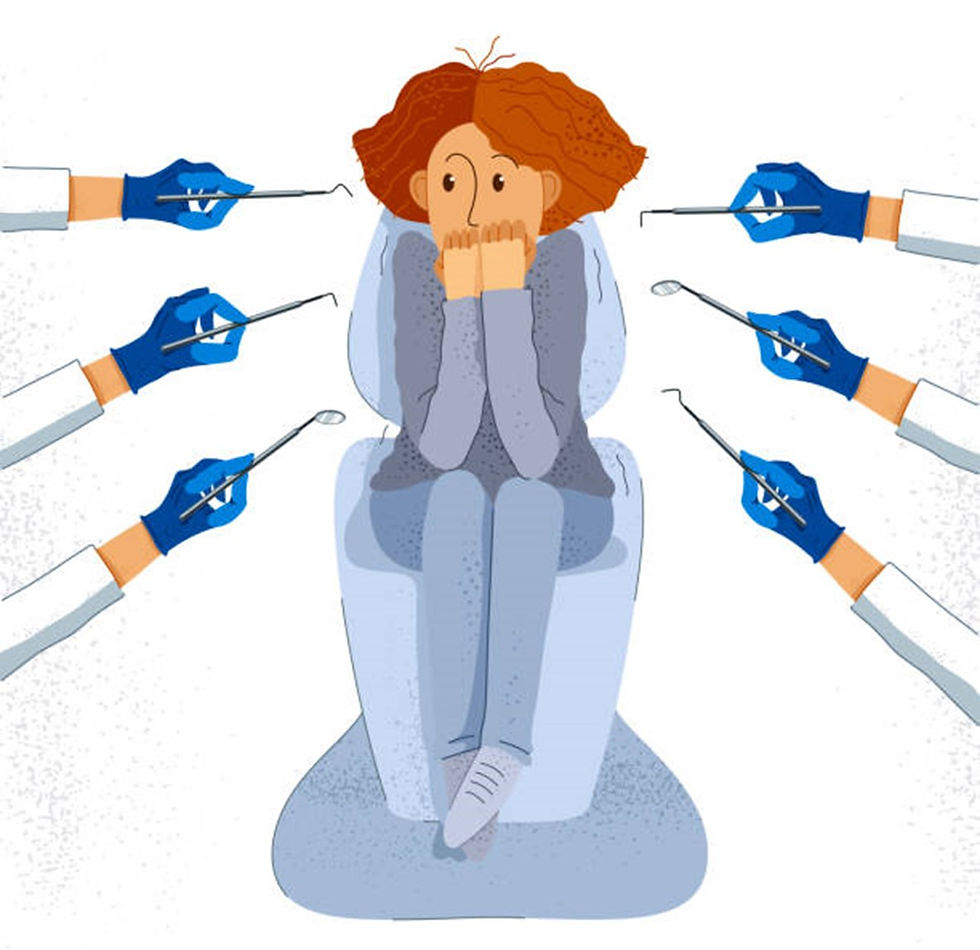10 tips to manage anxiety
- Therapyhere
- Oct 22, 2023
- 3 min read
Updated: Nov 19, 2025

Most of us experience anxiety at some point in our lives. It is a feeling of worry, unease or fear about things that are about to happen or could happen in the future and is experienced through our feelings, thoughts and physical sensations.
Anxiety is a normal response to feeling under threat and so feeling anxious can be a good thing in that it keeps you alert, makes you aware of risks and danger and can be motivating.
However, sometimes anxiety can get in the way if it becomes too strong and lasts for a long period of time; it can impact your daily activities and enjoyment of life and so can negatively affect your mental health and well-being.
Here are my 10 ten tips to help you manage anxiety:
#1 - Identify the trigger. Identifying what makes you feel anxious and what is the trigger is an important first step in tackling anxiety. When you are more aware of the triggers, you can then look at ways to manage them.
#2 - Do some mindfulness, relaxation and breathing exercises to calm the anxiety. There are many relaxation techniques available so find one that works best for you and practise it regularly so that when you do need to use it for anxiety, you are prepared. Perhaps check out the apps Calm, Headspace, Breathe.
#3 - Do regular exercise. Exercise is a great way to help reduce symptoms of anxiety so go for a walk or a run, go to the gym or have a dance around your room. Even just a few minutes of regular exercise will have a positive effect on your well-being.
#4 - Keep good sleep hygiene. Sleep can get affected when feeling anxious so try to keep good sleep hygiene by having a bedtime routine, avoid large meals and caffeine and alcohol before bed, turn off your phone at least an hour before bed and do some relaxation. Feeling well-rested will enable you to cope better with your anxiety.
#5 - Talk to someone you trust. Reach out to a friend or family member to share how you are feeling and check out what support your employer has.
#6 - Make a list of what helps to reduce your anxiety levels. It is hard to think clearly when we are feeling anxious so it is helpful to have a list at the ready.
#7 - Eat healthy and well-balanced meals. What you eat can make a difference to your general mood and well-being and try to avoid caffeine and alcohol as these can worsen anxiety symptoms. Likewise drink plenty of water as even mild dehydration can affect your mood.
#8 - Be kind to yourself and make time for activities that you enjoy, that help you relax and connect you with others. All this helps to reduce anxiety.
#9 - Challenge your negative thoughts. Often negative thoughts feed the anxiety so challenge these thoughts and replace them with positive ones.
#10 - Get professional support. If you are struggling to manage your anxiety on your own, reach out for help. It is important to not suffer alone and get overwhelmed by how you are feeling. Asking for help is a sign of strength and courage and with help from a psychotherapist, you can learn to manage your anxiety and positively change your mental health and emotional well-being in as little as a few visits.
*Bonus Tip-Laughter. This is one of the best ways to boost mood and reduce anxious feelings. Arrange a comedy night out and see how you feel afterwards.
For further help and coping strategies, please click here to arrange an initial FREE 15-minute telephone call with me or e-mail directly alison@therapyhere.co.uk.




Comments